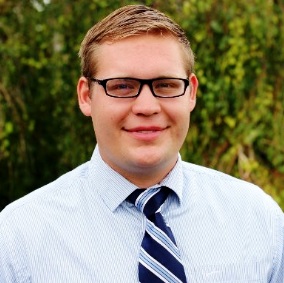Job Market Paper
The Returns to Elite Sports Programs: Signaling or Value-Added [pdf]
This study constructs a novel panel dataset of highly recruited high school athletes, analyzes their participation in college sports programs and subsequent professional sports career outcomes. Utilizing the matched applicant approach, or Dale and Krueger method, that exploits variation in enrollment decisions conditional on similar offer-sets, I estimate selection-corrected returns to attending an elite college sports programs on job placement in the NFL. The findings reveal that student-athletes from top-ranked football programs are significantly more likely to become professional athletes, with a one standard deviation increase in sports program ranking raising the likelihood of being drafted by 32\% of the mean. The paper further explores whether these returns align with a human capital or signaling framework, concluding that the evidence supports the latter, particularly with heterogeneous effects across different position groups.
Working Papers
Career Decisions for Children in Thai Village Economies (with Fan Wang and Robert Townsend)
This empirical study focuses on understanding career decisions among children and young adults in Thai villages. It employs clustering analysis to identify career trajectory clusters and investigates how early investments in human capital, such as work experience and schooling, influence later-life career paths. The study also explores whether the timing or magnitude of these investments matters more and considers the role of household characteristics and environmental factors in adult labor market outcomes. The Townsend Thai Monthy Survey used provides a detailed, monthly examination of time allocation from childhood to adulthood, allowing for an exploration of inter-temporal substitution dynamics. Ultimately, the research aims to uncover the link between time allocation patterns, human capital accumulation, labor market participation, and career choices, with potential implications for policy interventions in village economies to support child development and economic well-being.
The Gender Gap in the Market for Superstars: Evidence from the NYT Best Sellers List
Peer Reviewed Publications
Evaluating Predictors of Participation in Telephone-Base Social Connectedness Interventions for Older Adults: A Dual Machine-Learning and Regression Approach Gerontology & Geriatric Medicine, 2023
Social isolation is a well-documented contributor to poor mental and physical health, and interventions promoting social connectedness have been associated with various health benefits. This study examined predictors of participation in a telephone-based social connectedness intervention for socially isolated older adults. Data were obtained from a social-connectedness intervention that paired college students with Houston-area, community-dwelling adults aged 65 years and older and enrolled in Medicare Advantage plans. We combined machine learning and regression techniques to identify significant predictors of program participation. The following machine-learning methods were implemented: (1) k-nearest neighbors, (2) decision tree and ensembles of decision trees, (3) gradient-boosted decision tree, and (4) random forest. The primary outcome was a binary flag indicating participation in the telephone-based social-connectedness intervention. The most predictive variables in the ML models, with scores corresponding to the 90th percentile or greater, were included in the regression analysis. The predictive ability of each model showed high discriminative power, with test accuracies greater than 95%. Our findings suggest that telephone-based social-connectedness interventions appeal to individuals with disabilities, depression, arthritis, and higher risk scores. scores. Recognizing features that predict participation in social-connectedness programs is the first step to increasing reach and fostering patient engagement.
- Chae, Minji $^1$; Chavez, Arlette $^1$; Singh, Maya $^1$; Holbrook, Jordan $^1$; Glasheen, William $^2$; Woodard, LeChauncy $^3$; Adepoju, Omolola $^3$
- $^1$ Humana Integrated Health System Sciences Institute
- $^2$ Humana
- $^3$ University of Houston, College of Medicine, Humana Institute
Estimating the effect of focused donor registration efforts on the number of organ donors
Waiting times for organs in the United States are long and vary widely across regions. Donor registration can increase the number of potential donors, but its effect on the actual number of organ transplants depends upon several factors. First among these factors is that deceased donor organ donation requires both that death occur in a way making recovery possible and that authorization to recover organs is obtained. We estimate the potential donor death rate and donor authorization rate conditional on potential donor death by donor registration status for each state and for key demographic groups. With this information, we then develop a simple measure of the value of a new donor registration. This combined measure using information on donor authorization rates and potential death rates varies widely across states and groups, suggesting that focusing registration efforts on high-value groups and locations can significantly increase the overall number of donors. Targeting high-value states raises 26.7 percent more donors than a uniform, nationwide registration effort. Our estimates can also be used to assess alternative, but complemtary, policies such as protocols to improve authorization rates for non-registered potential donors.
- James Cardon $^1$, Jordan Holbrook $^2$, Mark Showalter $^1$
- $^1$ Brigham Young University: Department of Economics
- $^2$ University of Houston: Department of Economics
Recommended citation: Cardon JH, Holbrook JC, Showalter MH (2020) Estimating the effect of focused donor registration efforts on the number of organ donors. PLoS ONE 15(11), PUBLIC LIBRARY OF SCIENCE: e0241672. https://doi.org/10.1371/journal.pone.0241672
Works in Progress
Trade and Wage Rigidity: Accessing the Role of Monetary Policy [pdf] [slides]
- William Bennett, University of Houston
- Jordan Holbrook, University of Houston
- Yang Pei, University of Houston
- William Sevier, University of Houston
The Effect of Mass Shooting Events on Community Mental Health
- Jordan Holbrook, University of Houston
- Angelo Dos Santos, University of Houston
- William Sevier, University of Houston

